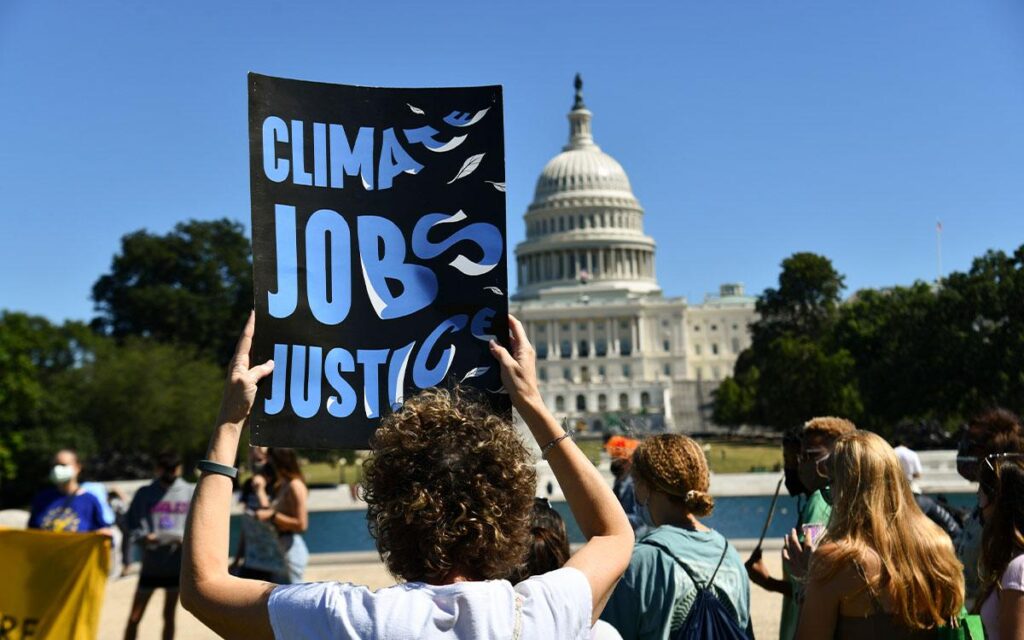It’s time to declare independence from fossil fuels
Thu, 2024-07-04 02:00

Activists gather near the US Capitol as part of a global climate strike to demand government action on climate change. Photo by Matthew Rodier/Sipa via AP
Independence Day is a call to action to leave our children an America as good as its promise.
This time of year makes me think about my family’s journey in this country. My father’s family is white, descending from the youngest combatant at the Battle of Lexington and Concord. My mother’s family is Black, descending from two Black Virginia statesmen who rebuilt the Commonwealth after the Civil War. One of them descended from Thomas Jefferson’s grandmother.
Today, both sides of my family, like many Americans, live in areas once bustling with factories but now facing poverty, despair, suicide, and opiate addiction. Moreover, it keeps getting hotter, and floods and super storms are more frequent.
There is one solution that can tackle these problems: addressing the climate crisis. This can turn around the economy, our neighbors’ lives, and the planet’s fate.
The next five years will define who leads the world economy: the United States or China. Our leadership in innovation and design allowed us to take an early lead in electric vehicles (EVs) and green technologies, but China leads in manufacturing. Today, China dominates solar panel production and has overtaken the US in EVs. Despite this, we continue to fight, despite calls from Fox News and others to give up.
Georgia hosts the largest solar panel production facility in the western hemisphere. Qcells, which owns this facility, is opening another in Georgia, making every component of solar panels, from ingot to finished product. This has been revolutionary in places like Dalton, Georgia, where employees’ children see their parents as heroes saving the planet.
The South is building a battery belt. EVs are rolling off assembly lines in Detroit and elsewhere. Illinois has recently become a hub for EV production. The green economy America has fostered is opening new factories and creating thousands of jobs coast to coast, thanks in part to investments made under President Biden.
To save the planet, we must also protect and rebuild our forests. Expanding wild areas and protecting nature creates more jobs in rural America and preserves ancient ways of hunting, fishing, and connecting with the natural world.
Restoring urban tree canopies is one of the most effective ways to combat the urban heat crisis in cities. Recently, I’ve visited cities like Phoenix, Arizona, and Lansing, Michigan, with US Department of Agriculture Undersecretary Homer Wilkes, promoting a $1.5 billion tree planting initiative.
Every new tree casts shade, making the temperature feel 10 to 15 degrees cooler than in the sun. This encourages people to get outdoors, leading to safer, more connected communities and reduced social isolation and suicide.
The pursuit of America’s promise is ongoing. Although we may feel separate, we walk this road together and will rise or fall together. On America’s birthday, let’s meet the challenge of the climate crisis and make the world a better place for everyone.
Original Story at www.sierraclub.org
